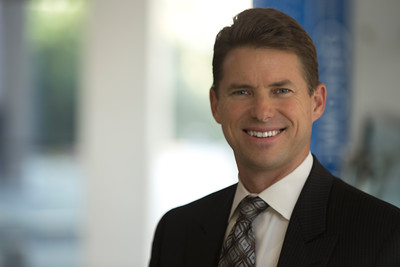In collaboration with CHIME, Becker's Hospital Review's "Life of a Healthcare CIO" series features leading hospital and health system CIOs from across the country who are sharing their experiences, best practices and challenges.
To recommend a CIO to be featured in this series, please contact Helen Gregg (hgregg@beckershealthcare.com).
An interview with Robert Eardley, senior vice president and CIO at Houston Methodist. (Interview has b een edited for length and clarity.)
een edited for length and clarity.)
Question: You have about $300 million in committed IT projects at Houston Methodist right now. Can you tell me what some of those projects are?
Robert Eardley: Our biggest project is moving to an integrated Epic EHR. We’re a bit unique since this is not driven by MU or some other mandate. We believe this integrated system will allow our clinicians and support teams to deliver even higher levels of quality, safety and service to our patients. A second focus area is making it easier for our patients to be part of their care. We now offer online scheduling and the ability for patients to view their results, receive education and to communicate with their care team from a secure website. Collaboration is a third focus area. Soon, we will offer the ability for our employees to setup online collaboration meetings (WebEx) as easy as setting up an Outlook appointment. We are also getting ready to release an easy to use website that allows our physicians and employees the ability to get to any application on any device, anywhere.
Q: In your time with Houston Methodist, what has been your biggest accomplishment?
RE: A couple of years ago, Houston Methodist was at a crossroads. Either we needed to invest significantly in our current systems or we needed to take the leap and make the significant investment in the change to get to an integrated health record. After a review of our options, moving to an integrated health record was the right option for us. Quality, safety and service are the driving factors in our decision making here and the integrated system looked to help us achieve our goals in these areas. There were many motivated stakeholders that were involved in this but I am proud to have been allowed to facilitate many of the discussions that led to this decision.
Q: What do you see as your biggest misstep or mistake?
RE: Probably my biggest mistake was not pulling the cord sooner when we were struggling with one product deployment. Staying too long with a technology partner that is not delivering can be a disadvantage. I had spent a lot of time trying to turn around the situation. I should have recognized early on that the effort was doomed and should have been a little more aggressive in choosing a new future.
Q: What is the biggest challenge you're facing right now?
RE: It's staying focused on building our future. Our biggest challenge now is to build out our new EHR well which includes having our operational leadership fully understand and embrace the new workflow. The biggest risk with implementing something as large as this system is having our operational leadership not fully embracing or understanding each and every process that needs to be addressed. So, we're doing a lot of work to engage each department and location impacted. I think we have more than 800 subject matter experts engaged from our operational areas to help us do a review of all of the processes embedded within this EHR.
Usability and mobility are two IT trends that are challenging us to rethink how we support our users. Usability focuses us on those processes that users complete all the time to ensure we’ve done everything possible to make these easy to navigate and efficient to complete. For mobility, we'll be doing a lot of work on apps that are on everyone's smartphone or device. We’ve challenged ourselves in IT to be able to create and deploy apps that can help with clinical or operational workflow. That piece is very exciting to me because it's taking apps out of our consumer world and having apps play a productive role in our work life.
Q: What is one lesson you've learned during your career that you'd like to share with other CIOs?
RE: IT is a purveyor of change. For that reason, I think those in IT leadership positions need to understand change management and the solutions we're implementing. The people side of change is really important so we owe it to our users to understand their operations and understand the impact that our solutions are going to have on those that utilize them. We have to be able to tell the story of the human benefits of the technologies we deploy.
More articles on health IT:
CHIME launches two organizations for IT professionals
Are former employees threatening your IT security?
The life of a healthcare CIO: Broward Health's Dr. Doris Peek

